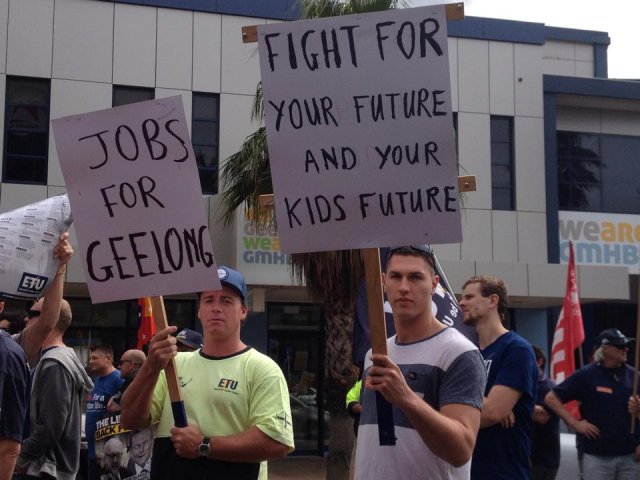
The Royal Commission into the use of union funds began on April 9. The commission is not an attempt to stamp out corrupt union practices, but a serious political attack on unions by the Tony Abbott government. It is designed to weaken the union movement and break militant union activity.
Comments made by Coalition ministers before the public hearings have started sets up a presumption of guilt in order to prejudice the public mind.
Abbott called the commission on the pretext of investigating the Australian Workers Union's (AWU) use of “slush funds”, with which former prime minister Julia Gillard has been allegedly involved.
But the commission has extraordinarily broad terms of reference. It will focus on five unions — the AWU, the Construction Forestry Mining Energy Union, the Electrical Trades Union (ETU), the Health Services Union (HSU) and the Transport Workers Union. But it is not limited to these and can investigate “any other person, association or organisation” alleged to be involved.
Some of the targeted unions are known for challenging big business while standing up for their members’ rights.
The outcome of this commission may be sweeping changes to the ability of unions to organise political and industrial campaigns. On the first day of hearings, the counsel assisting the commission, Jeremy Stoljar, suggested union officials should have the same legal obligations as company directors.
This follows in the footsteps of anti-union laws like Work Choices, introduced in 2005, which has had a big impact on the right of officials to attend worksites, and organise strikes and pickets.
The recent conviction of former HSU bosses Craig Thomson and Michael Williamson for corruption and fraud makes Abbott’s job easier. People are justifiably outraged at the use of union members’ money for personal enrichment by union officials.
Undoubtedly, there will be more cases of corruption uncovered during the hearings of the commission, and those union officials guilty of corruption should be punished.
Green Left Weekly will be following the commission as it unfolds and reporting on its findings. GLW proudly stands on the side of unions and will continue to campaign to defend unions against political attack.
Unions are workers' organisations. They have a right to collect money from their membership and use it for legitimate industrial and political struggle; the state has no right to intervene in union affairs.
The only way to overcome corruption is to work at democratising unions, so that members can make decisions over financial matters.
Much of the corrupting influence in unions comes from the Labor Party, which defends its factional and electoral interests at the expense of fighting for workers’ rights.
One solution to this would be to allow members to decide whether they want their union affiliated with the Labor Party. When the Victorian branch of the ETU voted to disaffiliate from Labor, 87% of those who voted were in favour. Other union members should be able to have the same option.
Any fight against union corruption needs to be carried out by union members, not governments.